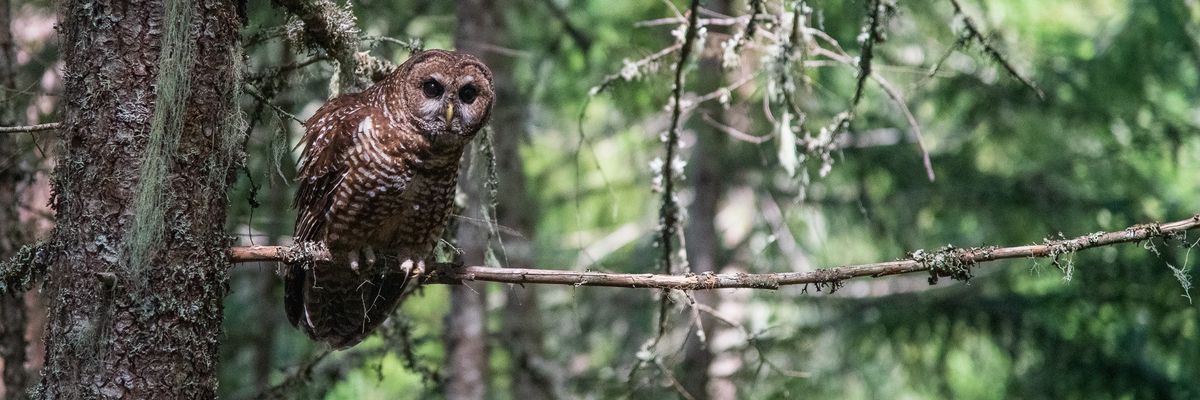While some wildlife defenders on Wednesday welcomed proposed Biden administration regulations aimed at reversing some Trump-era rollbacks of the Endangered Species Act, others voiced disappointment that the new rules won't undo much of the damage inflicted by the previous administration.
Rules proposed by the U.S. Fish and Wildlife Service (USFWS) and National Oceanic and Atmospheric Administration (NOAA) Fisheries would make it more difficult to remove a species from the endangered list, while restoring a provision of the Endangered Species Act (ESA) that safeguards species listed as "threatened"—one classification level below "endangered."
Additionally, one of the proposals contains a provision prohibiting consideration of economic impacts when determining whether to protect species. Another rule would enable the designation of critical habitat for climate-impacted species.
"As we celebrate the 50th anniversary of the Endangered Species Act, we need bold, transformative action, not more policy half-measures."
"These proposed revisions reaffirm our commitment to conserving America's wildlife and ensuring the Endangered Species Act works for both species and people," USFWS Director Martha Williams said in a statement.
NOAA Fisheries Assistant Administrator Janet Coit said that "these proposed regulatory updates will help ensure the [ESA] continues to serve as an effective conservation tool in the face of continued challenges, including biodiversity loss and climate change."
Defenders of Wildlife, a Washington, D.C.-based advocacy group, was among the organizations welcoming the administration's proposal.
"While areas of concern exist within these new regulations, restoring automatic protections for our nation's threatened species is a huge step in the right direction for the Endangered Species Act and biodiversity," Jamie Rappaport Clark, the group's president and CEO, said in a statement.
"As humans, we are inextricably linked with the ecosystems around us," added Clark, a former USFWS director. "Saving nature and establishing scientifically sound ways to coexist with wildlife must be a national priority. Our future depends on it."
Washington, D.C.-based legal advocate Earthjustice argued the proposals don't go far enough.
"These are promising steps toward restoring the purpose and power of the Endangered Species Act, and getting these protections back is why we challenged the harmful Trump rules for the past four years," Earthjustice attorney Kristen Boyles said in a statement.
"By mending the rules interpreting the ESA, the Biden administration can significantly help us address the worsening biodiversity crisis and celebrate the 50th anniversary of the act," Boyles added.
The Tucson, Arizona-based Center for Biological Diversity (CBD) criticized the Biden administration for "keeping in place some of the most significant rollbacks" of the ESA.
"This disappointing proposal fails to protect our nation's endangered plants and animals. It restores pieces of the Endangered Species Act but keeps many of the disastrous Trump-era provisions in place," CBD senior endangered species policy specialist Stephanie Kurose said in a statement.
"The administration’s proposal does nothing to address the fact that endangered species are dying a death by a thousand cuts," Kurose continued. "This is a major omission that shortchanges not only species like the spotted owl, but also the ecosystems they and all of us depend on for our survival."
"If federal officials truly wanted to stem the extinction crisis, they'd restore the full power of the [ESA] and overhaul the U.S. Fish and Wildlife Service," Kurose added. "As we celebrate the 50th anniversary of the Endangered Species Act, we need bold, transformative action, not more policy half-measures."
Former President Donald Trump—currently the frontrunner for the 2024 GOP presidential nomination—oversaw what one environmental campaigner at the time called a "steamrolling" of the ESA, "our most effective wildlife protection law."
